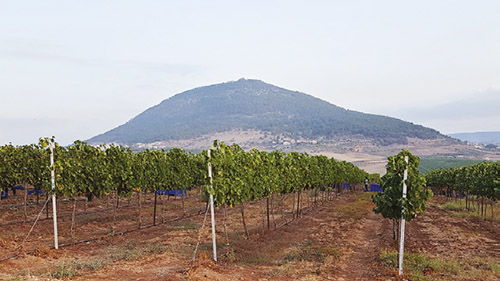
Back in the fall, when the editor of The Jewish Link Wine Guide and I were discussing topics for this magazine, it was the harvest season and Israel had just gone into a hard lockdown. An article on the impact of COVID-19 on the Israeli wine industry seemed to be a very timely story. I had assumed that I would interview Israeli winemakers, winery owners and consultants. I also assumed it would come out as one of those stories that would showcase Israelis’ unique sort of resilience in adversity. But that is not the story I am able to share.
I reached out to about a dozen people in Israel’s wine industry, some of whom are longtime friends, many I’ve known since I started writing about kosher wine in the mid-2000s. I am used to receiving a warm response from such requests and enjoy interviews that will often run longer than the time scheduled (if I ask for 15 minutes, I usually know I’ll be on the phone for more than half an hour), but not this time—not on this subject.
One person was willing to give me a brief off-the-record interview; two were actually willing to be interviewed on the record; and the rest declined to speak on this topic at all. With the ongoing pandemic and multiple lockdowns in Israel, the Israeli wine industry is hurting. And the message to me was clear: With so many unknowns, and such a rapidly evolving situation, for many in the industry, discussing the impact of COVID-19 was simply out of bounds.
Jeff Morgan, the proprietor of Covenant Wines, which has wineries in both California and Israel, said that the Israeli winery has been far more affected by COVID than the one in California “because in Israel the buying habits are very different than in America.” He added: “I would say that 80% of our sales in Israel have been restaurant sales on-premise,” which were stopped in their tracks by the nationwide lockdown.
For Covenant Israel, this loss of domestic sales has had a significant effect on the company overall. “We have a wine club in Israel, and we sell a little bit of wine directly, but it is nothing compared to the States. Thank God that our direct sales and our retail sales through our distributor have been down [only] a little bit” in the U.S., said Morgan. In Israel, however, they have had to reduce production. “We just don’t have the capital to operate normally. Everybody has taken pay cuts, both in America and in Israel,” he added.
According to Amichai Lourie, the winemaker for Shiloh Winery, it is not just the loss of restaurant sales. “We sell wine to Pesach programs and Sukkot programs, and that completely shut down. So all the wine we usually sell to those programs went from driving 100 miles per hour to a halt. Weddings and Shabbat sheva brachot, aufrufs and bar mitzvahs, and all these events where people would gather together; they bought a lot of wine. And when you stay at home, and weddings are with very few people, and there are no simchas, people drink much less wine.”
In Israel, as in America, wineries are considered essential businesses, and thus have remained open throughout the pandemic. However, the consequences of a positive COVID test for a winery employee in Israel can be far more stringent. “In Israel if you are exposed to somebody who is sick they close down your business,” said Lourie, “and you have to be in isolation for two weeks. Thank God nobody at the [Shiloh] winery got sick.”
Such a shutdown, particularly if it should happen during the harvest season, could be a disaster for any winery. Ari Erle, the winemaker for Covenant Israel, did test positive for COVID-19, but it was after the critical harvest and winemaking season. “He spent two weeks locked in his bedroom,” said Morgan. “Thankfully, nothing much was going on at the winery.”
As with many business sectors, the downturn that COVID-19 has caused for the Israeli wine industry will probably outlast the duration of the pandemic. Given the rapid pace of inoculations in Israel, the start of domestic recovery is likely only months away. However, it remains unclear when Israel’s wine-export market will be able to begin the long ride on the road to recovery.
By Gamliel Kronemer













